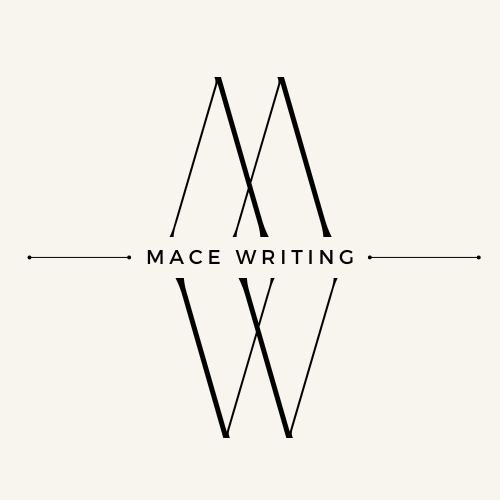10 Important Questions to Ask before Hiring a Professional Editor
Hiring a professional editor is an important step, and you want to make sure you’re investing your time, money, and effort in the right person. Asking relevant questions before making a decision could be the difference between getting a thorough, careful, conscientious editor who complies with your wishes and getting something less than satisfactory. When considering prospective editors, keep these ten questions in your back pocket, and you’ll greatly improve your chances of receiving what you want out of the editing experience.
Before You Hire a Professional Editor, Know the Answers to These Top 10 Questions
1.What’s your editing experience?
Experience is crucial when seeking out professional editing services. While there is no hard-and-fast rule for how many years make a great editor, just make sure you’re working with an experienced and savvy professional. You never want the manuscript to which you dedicated so many hours to be an editor’s first professional attempt.
2.What’s your educational background?
Yes. Some fantastic editors never received any training and have diverse professional and personal backgrounds. However, if an editor received a formal education in English or creative writing, that’s a positive sign you’re going to get the caliber of edit you seek.
3.What’s your editing specialty?
A good editor of technical manuals has some fundamentally different skills than a good novel editor. Especially if your manuscript falls within a particular niche, make sure your editor’s skills and experience lend themselves to your kind of project.
4.How would you characterize your editing style?
Some editors are slash and dash, cutting whole paragraphs or even rearranging chapter order. Other editors work with a much lighter touch, fixing grammatical errors and opting to make suggestions when something substantive could be changed.
Make sure your editor’s style matches your ultimate manuscript goals. For example, if you feel as if your project is close to ready, you don’t necessarily want an editor to come in liberally brandishing a red pen.
Then there’s temperament to consider. Some editors are blunt and to the point; others are more encouraging. What will you respond most positively to? Think about what approach will be most conducive to your success, and pick an editor that can accommodate.
5.What editing packages do you offer?
You never want to work with an editor who only offers a single edit level. Whether you want a straightforward, light edit or a more comprehensive job, working with an editor who offers different editing packages helps ensure there’s a service offering that’s right for you.
Offering multiple packages also demonstrates a willingness to be flexible and to tailor the editing job to your specific needs, which is always a desirable characteristic in an editor.
6.What editing style guide do you use?
Should you use the serial comma or not? Should you spell out that number or write it as a numeral? Does the period go inside the quotation mark or outside?
These are the kinds of stylistic questions writers routinely come up against. However, did you know there are style guides that provide concrete rules and advice about how to handle just about any stylistic question or situation?
By far, the most common style guide for nontechnical work is The Chicago Manual of Style (CMoS). It’s a tome of more than one thousand pages, and this massive collection of rules and best practices covers just about every editing situation under the sun.
Give preference to editors who use CMoS (and have had years to learn all the minute rules and details within it). As of 2017, it’s on the sixteenth edition. If your editor does use this style guide, make sure he or she uses the most up-to-date version.
7.How much does editing cost?
Editing prices are always going to be a key factor when seeking out a professional editor. Therefore, asking about price is a no-brainer. If the final price is outside your budget—and neither your budget nor the editor is flexible—it quite possibly means that editor simply isn’t going to work for you.
So, how much do editors charge? It varies significantly, of course, but expect to pay in the range of $30 to $100 per hour.
Editor rates are always going to be commensurate with experience. That is, you might find an editor only charging $20 per hour, but you risk working with an inexperienced person. Also, hourly rates could be a trap with inexperienced editors. Newbies are simply going to work slower than their more experienced counterparts, and that could mean a higher bill for you.
8.How do you charge your editor rates?
It’s, of course, important to know how much your editor charges, but it’s equally important to know how that editor charges. Is it a per word rate? A flat fee? An hourly charge?
Before you ever agree to anything with a particular editor, make sure you’re crystal clear about how you’re going to be charged. Taking the time to clarify this could save you from an unpleasant surprise when you open up that final invoice.
9.What’s your projected turnaround for my edit?
If you need your edit done immediately or on a very tight deadline, absolutely make sure your editor can accommodate that quick of a turnaround. There’s nothing worse than getting all the way through the process of picking the editor you want and then finding out he or she can’t meet your two-day deadline. (Need the work pronto? Expect to pay a premium for any rush job.)
10.Do you use Track Changes when editing (or something comparable)?
A good editor will always operate with the author in mind. Every editorial change and decision should be made to further help, educate, or benefit the author and improve his or her work. One way you can gauge if your editor takes this approach is if he or she uses Microsoft Track Changes, or some equivalent software or application.
Track Changes allows you to see every change, deletion, insertion, and comment made within the Word document. It then allows you, as the author, to accept or reject each one of those changes. It’s a great way to ensure you retain all decision-making power throughout the editing process.
After all, it’s your book. The editor can make suggestions, but you should always have final say about what ultimately happens to your work.
For more information about how to find a good editor who's the perfect fit for your manuscript, please feel free to reach out to a representative of MACE Writing today.

